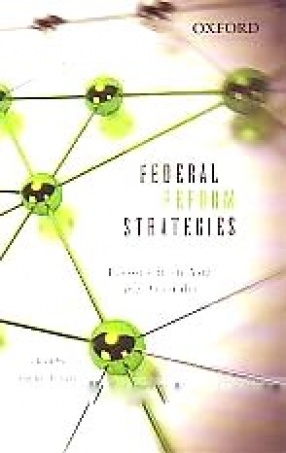
M. Govinda Rao

Showing all 9 books



For large countries, an agenda of integration, deregulation, and natural resource management reform typically cannot be fully pursued without the active participation of sub-national governments. Most of the literature about federalism and reform is about the reform of federalism, and focuses on intergovernmental finance. This volume is about reform through federalism. It explores federal reform strategies, that is, ways in which central governments can motivate, ...
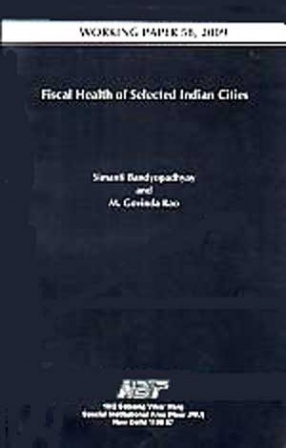
This paper provides an overview of the fiscal problems faced by five urban agglomerations in India, namely, Delhi, Hyderabad, Kolkata, Chennai, and Pune. It analyzes the fiscal health of the five urban agglomerations, quantifies their revenue capacities and expenditure needs, and draws policy recommendations on the means to reduce the gaps between revenue raising capacities and expenditure needs. The main findings suggest that, except for five small urban local ...

This working paper presents an analysis of the strategy required to generate the required resources for investment in various services necessary to achieve the MDGs. The analysis attempts to quantify the fiscal space to finance the MDGs and identify the necessary fiscal reforms required to finance the MDGs in a sustainable manner. The next section outlines the analytical framework used to determine the potential for expanding fiscal space in an economy. Section 3 ...
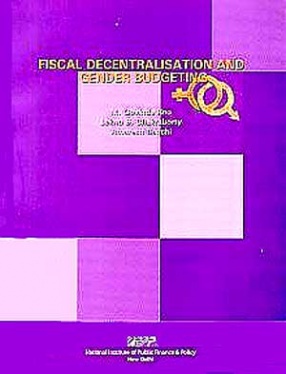
Study on local level gender responsive budgeting system and practices in Mexico, Morocco, Philippines, South Africa, and India.
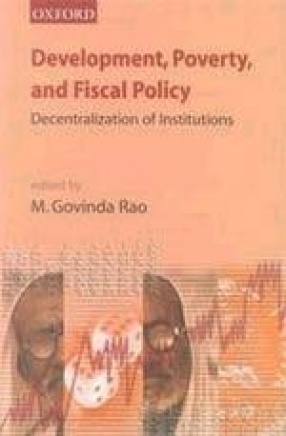
Public policies to eradicate poverty emphasize an optimal mix of strategies involving acceleration of growth along with direct anti-poverty interventions. This volume examines the multidimensional facets of poverty, trends in India, and the effective and equitable instruments to raise resources necessary for human development and creation of physical infrastructure. The essays discuss an important institutional dimension—provision of public ...
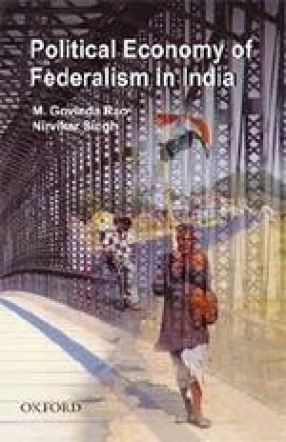
The failure of the centralized state, both in economic and political governance, has swung the pendulum in favour of decentralized systems across the globe in recent years. Making a successful transition to decentralized governance, however, is a formidable challenge. Indian federalism is at a crossroad. On one hand, the legacy of colonialism, partition, and the vision of nation-building have contrived to create a centralized federation. On the other, the ongoing ...
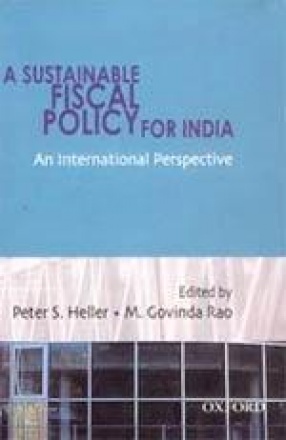
How has India’s economy grown so rapidly since the beginning of the 1990s, despite a large and growing fiscal deficit, and rising public debt? This book explores whether India has found a way to reconcile sustained expansionary fiscal policies with relative macroeconomic stability. Drawing on the world’s most respected and knowledgeable fiscal economists, with wide-ranging experience in emerging markets including India, it seeks to understand the strengths ...
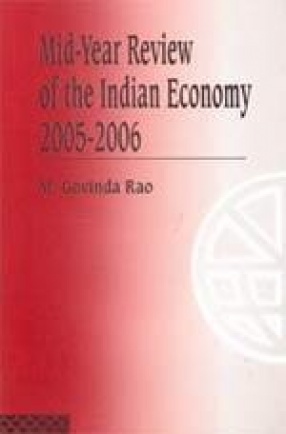
The mid-year review of the Indian economy for 2005-2006 presents the economic scenario with cautious optimism. The return to buoyant performance of the manufacturing sector, the continuing buoyancy of the services sector, the sharp increase in the savings rate and the creditable performance of exports present an optimistic picture of the Indian economy. Despite the severe fiscal imbalance, sharply increasing oil prices and a poor political climate for reforms, ...

Plantation forestry has been emerging as a strong attraction to the traditional forestry practice due to its acceptability and productivity improvement. After enunciation of national forest policy, 1988, plantation forestry has been encouraged to generate raw materials for domestic as well as industrial needs. This has accelerated the promotion of social, farm and agroforestry programmes in the wastelands and other marginal farmlands of the country. All these ...
